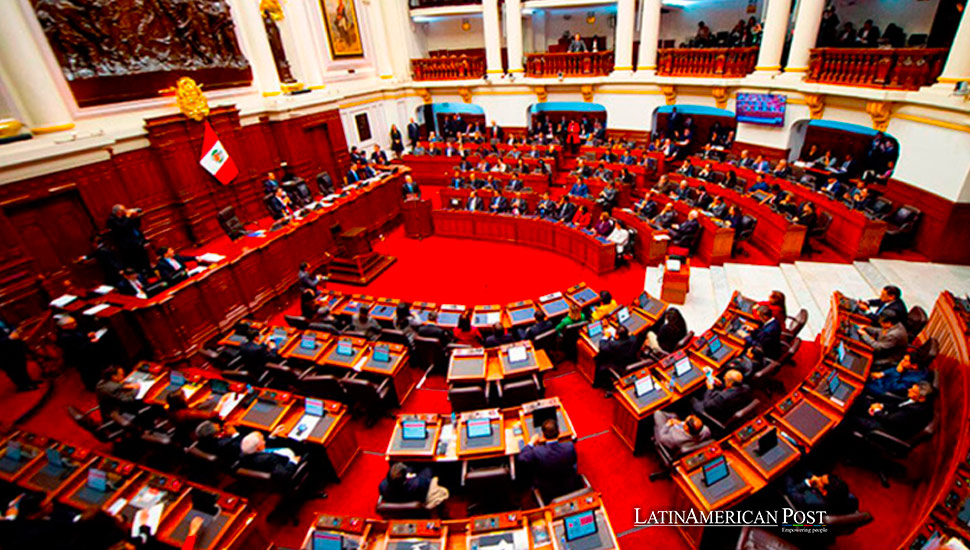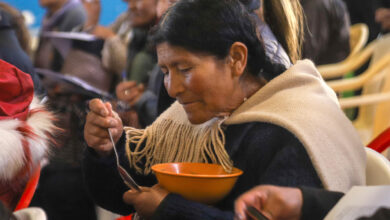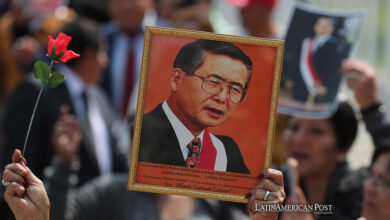Peru’s Gender Parity in Politics Faces Setback Amid Legislative Changes

The Peruvian government has called on Congress to reinstate mandatory gender parity and alternation in electoral candidate lists, which is crucial for ensuring women’s representation in political decision-making.
In a critical move for gender equality in politics, the Peruvian government has urged Congress to reinstate the mandatory provisions for gender parity and alternation in electoral candidate lists. These provisions, essential for ensuring balanced representation of women in political decision-making processes, were recently removed by Congress in amendments to the Organic Law of Elections and the Law of Political Organizations.
Peru’s Minister of Women, Teresa Hernández, publicly expressed the government’s concern over removing these fundamental gender equality mechanisms. Speaking on the radio station RPP, Hernández emphasized the importance of these provisions for women’s representation and urged Congress to reconsider its decision.
“We would very much like Congress to reflect on these severe measures it is taking before the bill reaches the executive branch. It is crucial to reverse these changes and reinstate the provisions that have been eliminated,” Hernández stated. She highlighted the significance of these measures in giving women the opportunity to be elected and ensuring their needs and interests are considered in important decision-making spaces.
The Legislative Changes
The amendments made by Congress remove the mandatory horizontal parity in regional and municipal elections and the alternation of genders in presidential candidate lists, set to take effect from the 2026 elections. This decision has raised concerns about the potential regression in the progress toward gender equality in Peru’s political landscape.
Latin America has made significant strides in promoting gender parity in politics over the past few decades. Countries like Argentina, Bolivia, and Mexico have implemented robust gender quota laws to ensure women’s representation in legislative bodies. These measures have been instrumental in increasing the number of women in politics and addressing gender imbalances in decision-making roles.
In Peru, the gender parity and alternation laws were crucial steps towards aligning with these regional trends and advancing women’s political participation. Removing these provisions represents a setback in the fight for gender equality, potentially reversing the gains made in recent years.
The Council of Ministers’ Stand
Minister Hernández revealed that several ministers are currently analyzing the approved law, which must still be sent to the executive for promulgation. It is highly likely to be returned to Congress with observations, emphasizing the need for a thorough review and potential revision of the amendments.
Hernández also directed a specific message to the 30 female legislators who supported the changes in the electoral law, urging them to reconsider their stance. “It is inappropriate, to say the least, that these women congresswomen limit the participation of other women by voting in favor of this bill,” she remarked.
Gender parity laws are designed to ensure that women have equal opportunities to participate in politics, which is essential for achieving a balanced and representative democracy. These laws help address systemic barriers historically preventing women from entering and thriving in political arenas.
The parity and alternation provisions in Peru’s electoral laws aimed to promote a more inclusive political environment by mandating the alternation of male and female candidates on party lists. This ensures that women are not relegated to the bottom of the list and have a fair chance of being elected.
Economic and Social Implications
The participation of women in politics has far-reaching implications beyond gender equality. Studies have shown that more excellent female representation in government leads to more comprehensive and inclusive policy-making. Women in leadership roles are more likely to advocate for social issues such as healthcare, education, and child care, which can lead to improved social outcomes for all citizens.
Additionally, gender diversity in political leadership is associated with better governance and economic performance. Inclusive decision-making processes that reflect the diversity of the population can lead to more effective and equitable policies, fostering sustainable development and economic growth.
Looking at the broader Latin American context, countries like Argentina and Bolivia have successfully implemented gender parity laws that have significantly increased women’s representation in their legislatures. Bolivia, for instance, has one of the world’s highest percentages of female parliamentarians, thanks to its progressive gender quota laws.
Peru can learn from these countries about the importance of maintaining and strengthening gender parity laws. The success stories from neighboring countries demonstrate that such measures are not only feasible but also beneficial for fostering a more inclusive and representative political system.
The Way Forward
As Peru grapples with these legislative changes, the government and civil society must work together to advocate for the reinstatement of gender parity provisions. Public awareness campaigns, advocacy by women’s groups, and pressure from international organizations can play a crucial role in influencing legislative decisions.
The government’s call for Congress to reflect and reinstate these provisions is a step in the right direction. Ensuring that women have equal opportunities to participate in politics is not just a matter of fairness but also a prerequisite for a healthy and functioning democracy.
The recent legislative changes in Peru represent a critical juncture for the country’s commitment to gender equality in politics. The removal of mandatory gender parity and alternation provisions poses a significant threat to the progress made in promoting women’s political participation. However, the government’s proactive stance and the ongoing analysis by the Council of Ministers offer hope for a reversal of these changes.
Also read: Peruvian Migration to the U.S.: A Crisis of Geography and Policy
By reinstating these provisions, Peru can continue to advance towards a more inclusive and representative political system, ensuring that women’s voices and interests are adequately represented in decision-making processes. Upholding gender equality in politics is essential for building a more equitable and just society that reflects the diverse perspectives and experiences of all its citizens.





